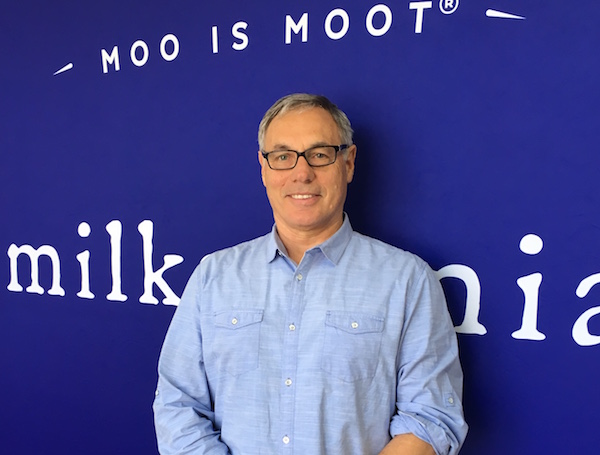
Jim Richards is the CEO of Milkadamia, the maker of plant-based, vegan macadamia milk and products produced through regenerative farming techniques.
ODP: What are the barriers that prevent regenerative farming from being used more widely?
JR: The interest in regenerative farming among farmers is high and we can anticipate many more farms becoming regenerative. However, what pushed organic was not farmers en-masse deciding to farm organically, but consumers wanting organic farmed products. Consumer awareness that regenerative farming produces higher yields of nutrient-dense food while building soil health, that regenerative framing invests in the health of our nation’s soils rather than exhausting them. That the healthy soils created by regenerative farming sequesters massive quantities of CO2 and can give the planet a little more breathing space. These benefits are aligned with the earth’s needs and our desire to provide a safe future for our children and all living things we share this planet with.
ODP: As nut milks become a more popular alternative to cow’s milk, one of the issues consumers are conscious of is the effect on land and water that nut cultivation can have. What sets Milkadamia apart from a product like almond milk which is notoriously very water-intensive?
JR: Trees always have a positive impact on the land. The soils under macadamia orchards are left undisturbed and the microbes that are the foundation of all life prosper and flourish there. The water problem with almonds is not how much water but that they along with other crops are depleting groundwater in California much faster than nature can replenish. Our farm and the farms we source for Milkadamia do not have irrigation systems. The trees are watered by rainfall alone.
NOTE: It takes about 2000 gallons of water to produce one gallon of dairy milk about double Almond milk use.
ODP: What was the process like to find enough farmers that could grow macadamia nuts through a regenerative process? Did you have to help them transition their farming practices?
JR: Our own farm practices regenerative farming of Macadamias as does some of our friends and neighbors. We proactively choose to source from farms that are including regenerative practices and making strides in water conservation. Regenerative farmers themselves are enthusiastic promoters and the practice is gaining momentum within farming communities. The macadamias we reserve for Milkadamia are grown using regenerative methods. We are still learning: life on Jindilli Farm has become a knowledge quest for the best ways to build healthy new topsoil. We have plenty to learn, we are not fully there yet, but we are fully committed.
Our purpose for Jindilli Farm is to develop it into an influence for regenerative farming within our rural community and far beyond. However, our hope is that we, and our farm, will quickly become an irrelevance because folk have far surpassed any influence we may have through their widespread support of regeneratively farmed food.
Meanwhile, like all farmers who turn to regenerative farming, our enjoyment of farming, hope for the future and love of the land has also been regenerated and elevated. The beauty of our farm, the entwining, interconnectedness and cross-dependence of life there, along with the idea that photosynthesis and subterranean microbes are the silent engines of life on our planet, and that we are entirely dependent on them humbles – as it should.
Long, long may it all continue.
ODP: For those of us looking to lessen our footprint on the planet, what are the most significant reasons we should consider switching to nut milks like Milkadamia?
JR: Where dairy is a hugely inefficient use of water and land while being a major polluter, trees do the opposite. Trees filter water and breathe out the sky. Trees allow the soil to remain undisturbed and for the subterranean networks that regenerate new soil to flourish. Trees don’t emit greenhouse gasses or raw sewerage and nut milks are not built on the cruel exploitation of the act of motherhood, as is dairy. Adding more plant-based meals is an act of genuine eco consequence that we should all support.
ODP: In the U.S. we all grew up being told that dairy milk is a superfood (remember those Milk Does A Body Good campaigns?), has it been difficult for a company like yours to break through this consumer mentality?
JR: Consumers are more informed and connected than ever and they do their own research – we don’t run anti-dairy or pro plan- based milk campaigns– we don’t need to, consumers are spontaneously making values informed food choices around health, eco concerns and animal welfare issues. Dairy have conducted a decades-long scare campaign to sell their overproduction of milk and have been aided in many parts of the world by protectionist laws and government subsidies. Thousands of vegan athletes are proving health, strength, vitality and longevity do not require dairy. Their bones are not crumbling from lack of calcium as dairy insisted would happen. It is almost impossible not to get enough high-quality calcium and protein from a varied diet of vegetables.
July 12, 2019 » farming, plant based, regenerative farming, trees, vegan


